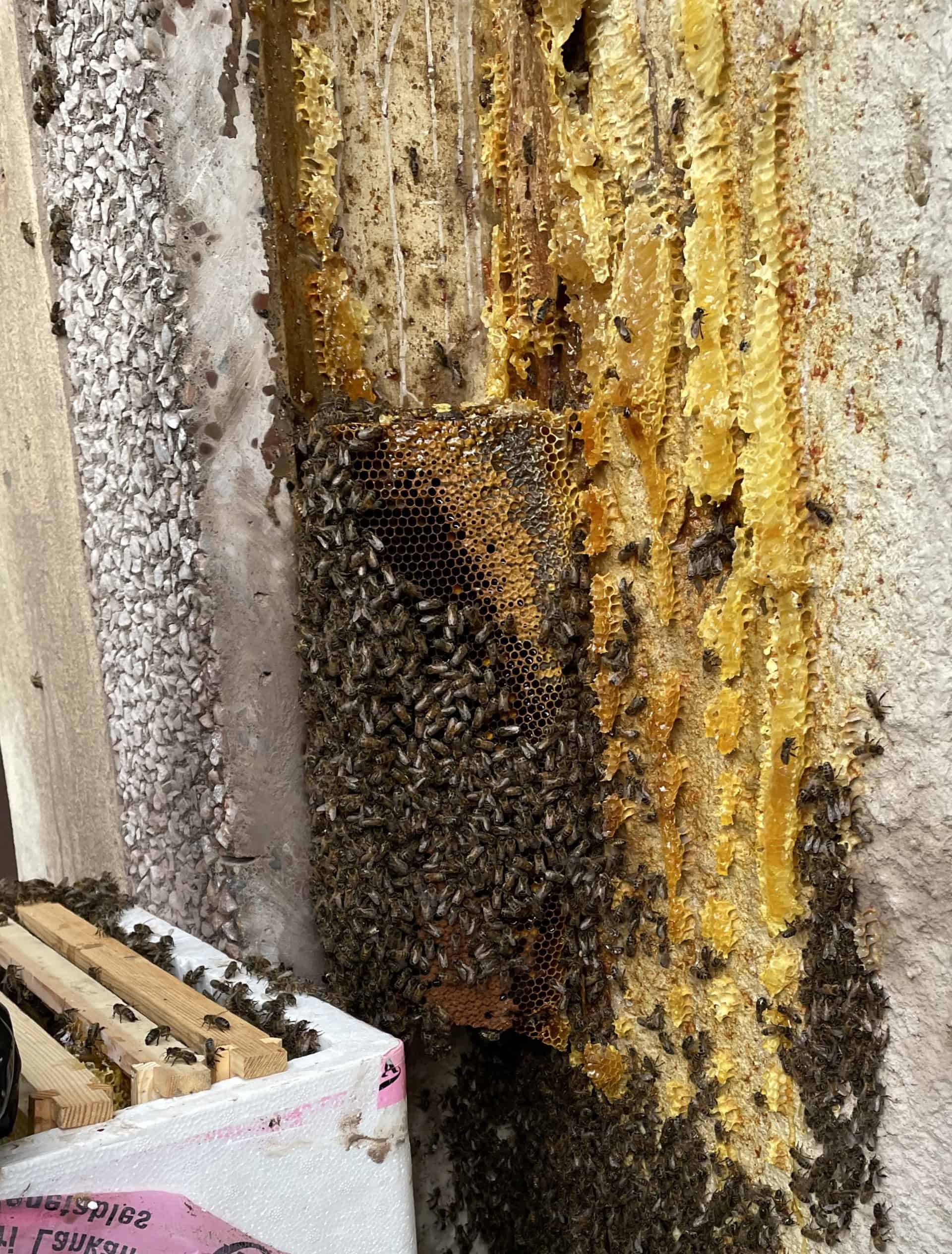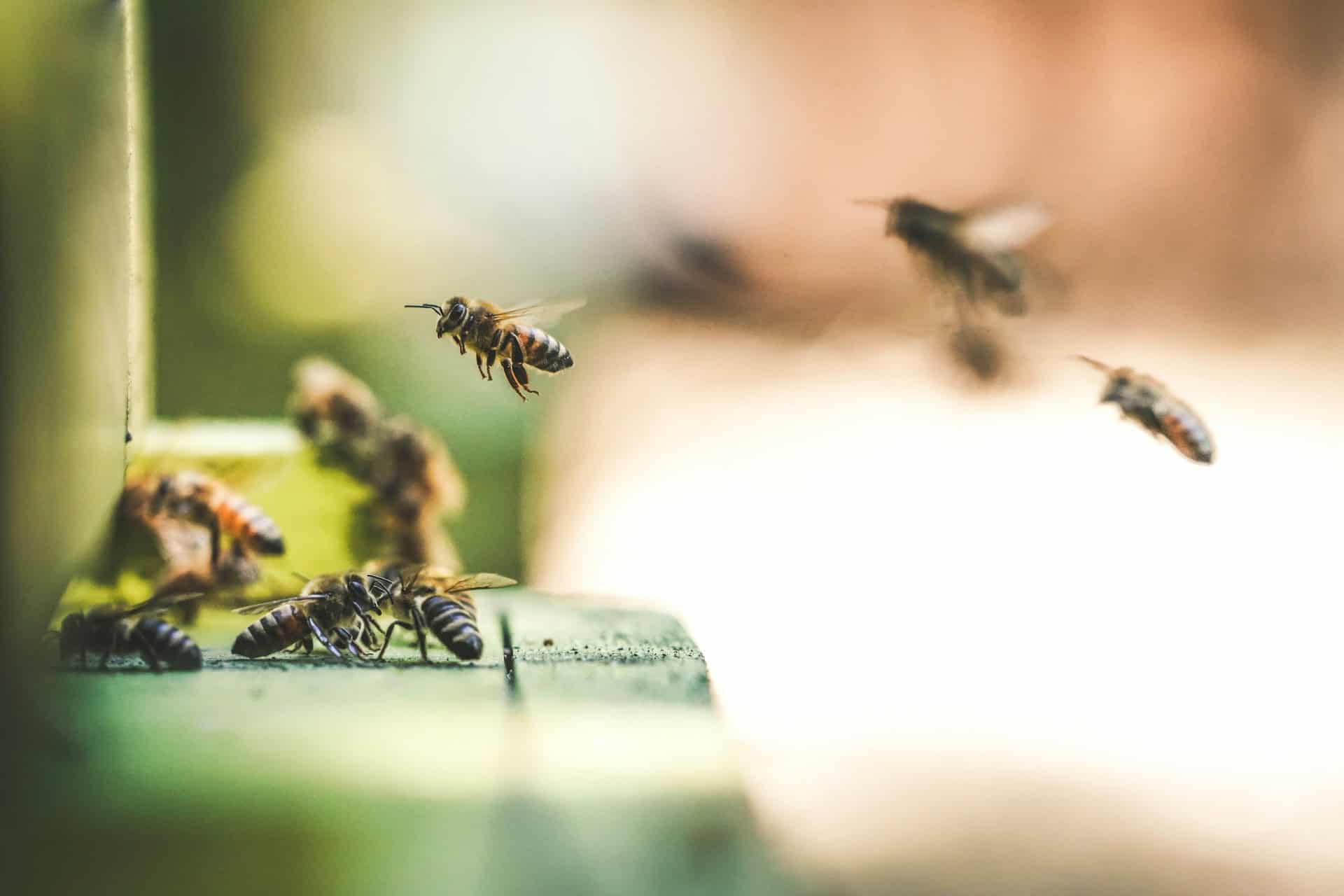It has been a busy month at the Isle of Wight’s Sandown wastewater treatment works, as more than 50,000 honeybees have had to be relocated to a new home.
The unexpected visitors, who formed a hive within the walls of one of the site’s buildings, have been carefully transferred to ensure their continued safety and the integrity of the building.
Swarm requires expert intervention
Southern Water’s Sandown team noticed a growing buzz in recent weeks, eventually discovering that honeybees had nested inside the storeroom wall. With increasing numbers turning the area into a “motorway of bees,” as described by Operational Manager Chris Weeks, the team called in beekeeper Mark Gale from Bee Tree Rescue in Surrey.

Mark spent three days carefully removing the bees, transferring their honeycombs, and ensuring their queen was safely relocated. He described the process as intricate, explaining,
“This was an unusual task in that we had to cut out the honeycombs and transfer them into an alternative hive to rehome them on the Island.
“The honeybees soon regrow and re-glue their nest together.”
Ventnor Botanic Garden: A new home
Following their extraction, the bees have been placed in a holding area at a Tree Bee Rescue Apiary.
Later in November, they will be transferred to their new permanent home at Ventnor Botanic Garden. The Garden have kindly agreed to host the hive, providing a secure and suitable environment for the bees to thrive on the Island.
Chris commended the coordinated effort, noting that after removing a section of the wall, the queen bee and honeycombs were carefully moved to a temporary hive.
“It was great work by everyone involved in the safe removal of the bees,” he added, praising the team’s collaboration and the careful handling by Bee Tree Rescue.
A positive outcome for bees and local ecology
By safely rehoming the colony, the project ensures the bees can continue contributing to the local ecosystem without disruption to Sandown’s operations.
As they settle into their new home at Ventnor Botanic Garden, these bees will serve as a small but vital part of the Isle of Wight’s natural habitat, supporting the Island’s flora and fauna for seasons to come.





